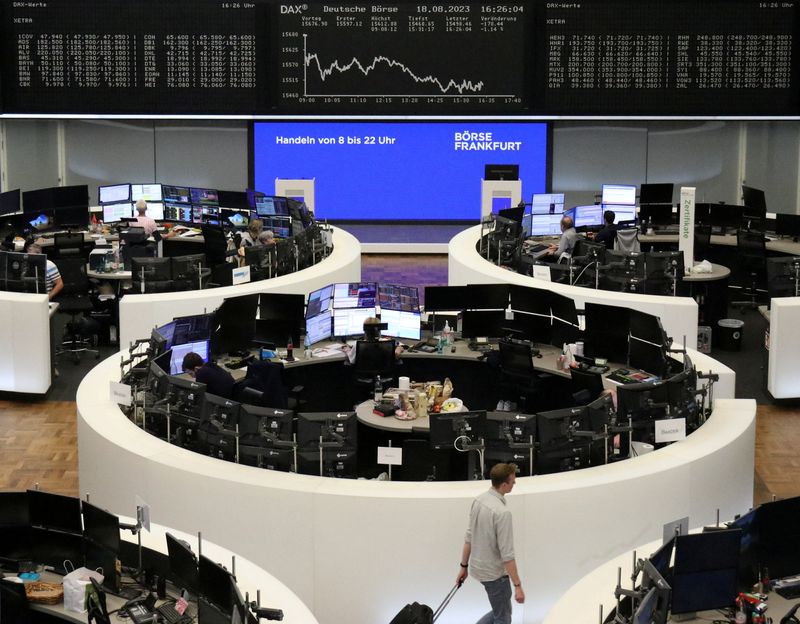By Sruthi Shankar and Shashwat Chauhan
(Reuters) -European shares fell on Thursday as chipmakers slumped on reports that China has widened curbs on use of Apple (NASDAQ:AAPL) iPhones by government staff, while miners tracked metal prices lower.
The pan-European STOXX 600 index eased 0.1%, down for the seventh straight day, its worst string of losses since February 2018.
European semiconductor firms slid on reports that China has in recent weeks widened existing curbs on the use of iPhones by state employees, telling staff at some central government agencies to stop using their Apple mobiles at work.
Apple supplier STMicroelectronics slumped 4.1%, while BE Semiconductor, Nordic Semiconductor, ASM International, Infineon and ASML dropped between 2.6% and 6.3%.
The broader technology sector lost 2.0%, logging its worst single-day performance in two weeks.
European miners fell 2.0% as prices of most metals fell against a strong dollar and on demand concerns from top metals consumer China. [MET/L]
Data showed China's exports and imports fell in August, as the twin pressures of sagging overseas demand and weak consumer spending squeezed businesses in the world's second-largest economy.
"(Chinese) consumers have been far more cautious through this recovery phase than anticipated and clearly that's bad news," said Henk Potts, market strategist at Barclays (LON:BARC) Private Bank.
China-exposed luxury heavyweight LVMH and insurer Prudential (LON:PRU) shed 1.0% and 3.2%, respectively, weighing on the STOXX 600.
Meanwhile, defensive sectors such as utilities and healthcare, considered relatively immune to economic cycles, helped crimp losses, rising 1.4% and 1.2% respectively, as the economic outlook for Europe continued to darken.
Data showed German industrial production fell slightly more than expected in July. The Ifo Institute said the German economy will contract by 0.4% this year, confirming its previous forecasts published in June.
With economic activity declining across the 20 countries that use the euro and inflation easing, investors are betting the ECB will end its streak of nine consecutive rate increases on Sept. 14, even if it keeps the door open to further moves.
"We expect activity to continue to weaken through the second-half of this year and remain constrained through the course of 2024," added Potts.
Meanwhile, European statistics agency Eurostat revised its estimate that gross domestic product (GDP) in the euro zone grew 0.1% in the second quarter compared to the previous three months.

Year-on-year the GDP increased by 0.5%, Eurostat said, revising its earlier estimate of 0.6% growth.
Among individual stocks, Direct Line Insurance Group surged 15.8% after the British motor and home insurer forecast better operating profit in 2024.